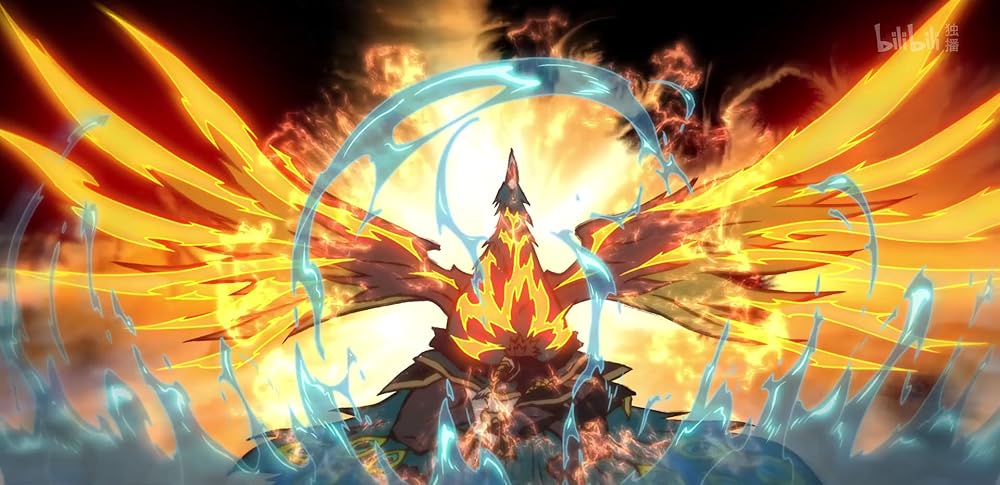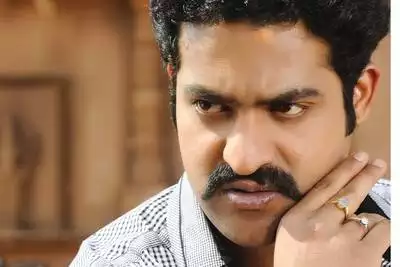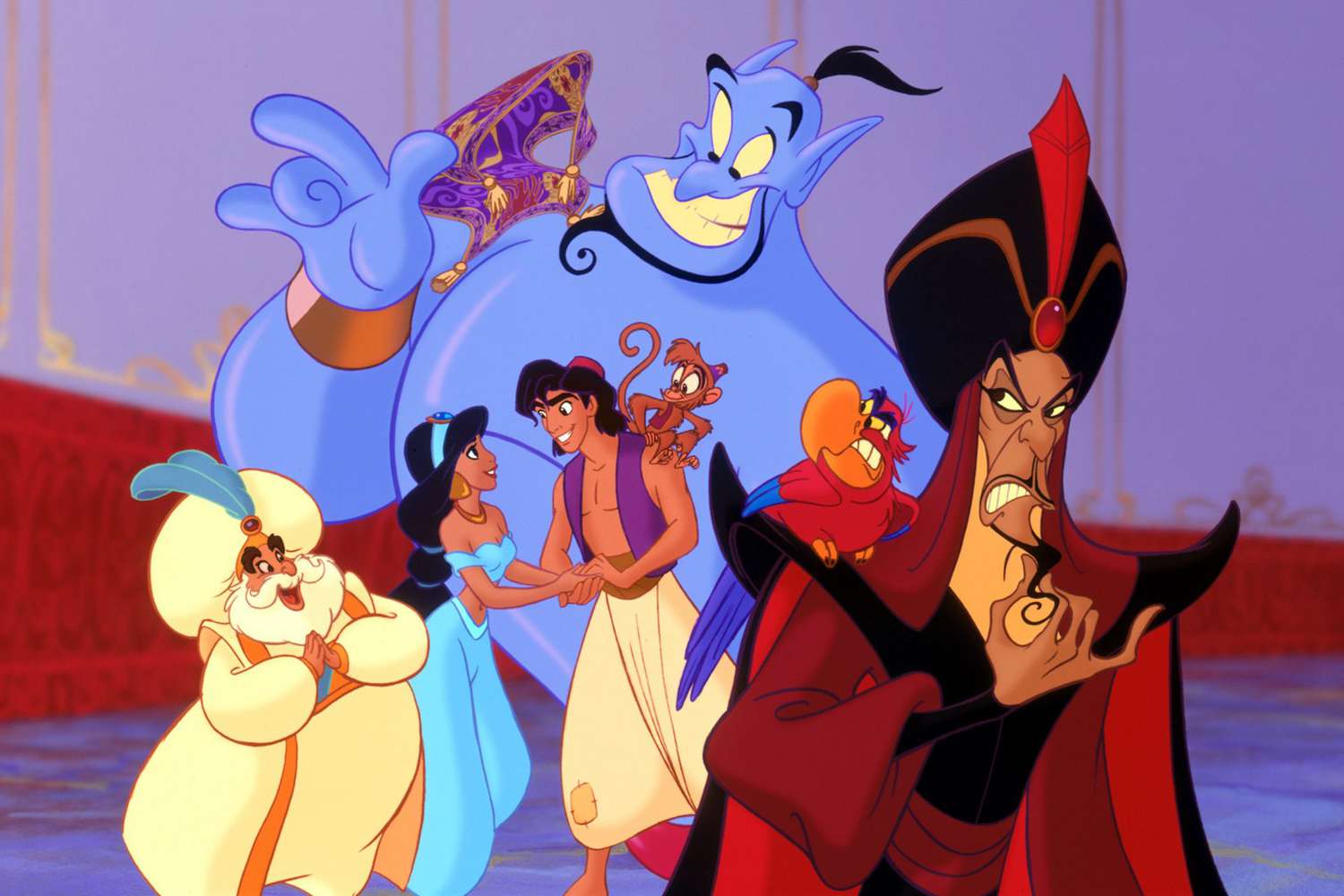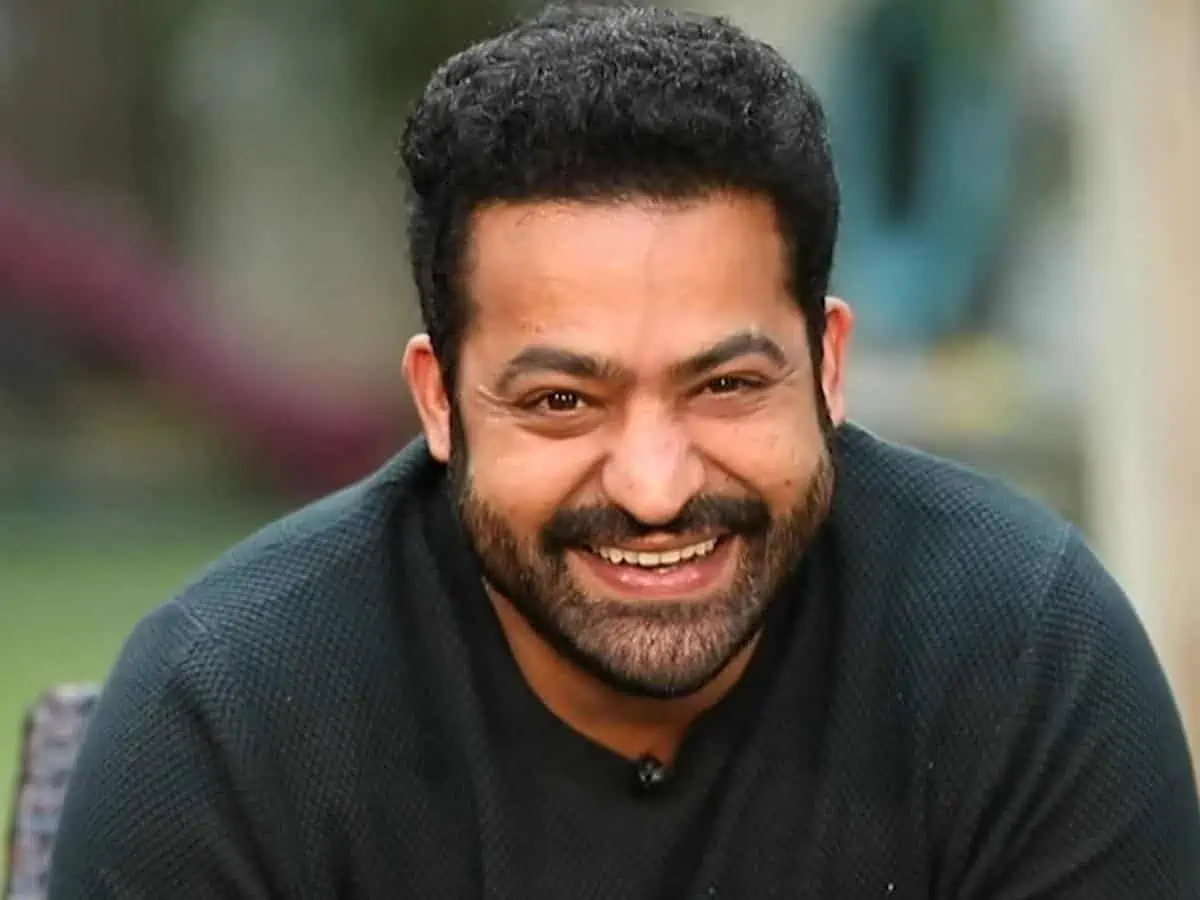For as long as stories have been told, we have had the protagonist. In many situations and in the most fabled of tales, the protagonist is known to us, the audience, as “the good guy” – but this is by no means a requirement.
In the most technical of terms, all this person needs to be is “the leading character or one of the major characters in a drama, movie, novel, or other fictional text”. That’s it. They have no literary obligations to be kind, moral, just, or “the good guy”. And, in my own personal opinion, it is the stories that revolve around the ones who aren’t quite as morally sound as the ones in fairytales, that happen to be the most interesting.
The rise of streaming services has done a lot to disrupt the formerly strict setup of the entertainment industry and studio system. Gone are the days of being obsessed with ticket sales on opening weekends, massive P&A budgets dedicated to a single film, and the reliance on the typical formulaic blockbuster setup that has been the trend for.. well, forever. The goal now is to keep your eyes on their prize.
That is not to say that things have somehow gotten easier. The stakes are higher than ever for HBO, Hulu, Netflix, and others to experiment, push the limits on traditional storytelling, and keep you far away from the cancellation button in your account settings.
 The latest in Netflix’s planned journey of ambitious programming is their show called You, which is already creating quite the buzz with thought pieces and explanations coming from every direction. It is very well done, with a star-studded cast, an 8/10 on IMDB, and a 91% on Rotten Tomatoes (and this somehow all started as a Lifetime show..). Now, I’ll start with the most basic of facts: this show is creepy. But a different kind of creepy from the normal modern day Hitchcockian-thriller that we are seeing more and more of these days. The twist is: the creep is the protagonist of the show. It’s like if Psycho was told completely from the perspective of Norman Bates and we heard almost every messed up thought of his through voice-over; and the plot isn’t too far off either considering Joe Goldberg, You’s star played by Gossip Girl’s Penn Badgley, is also a socially awkward and murderous stalker.
The latest in Netflix’s planned journey of ambitious programming is their show called You, which is already creating quite the buzz with thought pieces and explanations coming from every direction. It is very well done, with a star-studded cast, an 8/10 on IMDB, and a 91% on Rotten Tomatoes (and this somehow all started as a Lifetime show..). Now, I’ll start with the most basic of facts: this show is creepy. But a different kind of creepy from the normal modern day Hitchcockian-thriller that we are seeing more and more of these days. The twist is: the creep is the protagonist of the show. It’s like if Psycho was told completely from the perspective of Norman Bates and we heard almost every messed up thought of his through voice-over; and the plot isn’t too far off either considering Joe Goldberg, You’s star played by Gossip Girl’s Penn Badgley, is also a socially awkward and murderous stalker.
 The writing in this show is good – a little too good. Like I said, we hear the inner thoughts of Joe throughout the entire show and even have – and it pains me to say this – sympathy for the guy in the beginning. He is very normal at first, kicking off the plot by noticing another main character, Guinevere Beck (played by Elizabeth Lail), in a book store where he is the manager, and falling in love at first sight. Cute, right? No! Not cute! Soon, we begin spiraling along with our protagonist into a deep, dark hole of stalking, breaking & entering, and murder. The whole time, I found myself rooting for Joe to just stop being creepy and be a normal boyfriend and live happily ever after.. like a normal person!
The writing in this show is good – a little too good. Like I said, we hear the inner thoughts of Joe throughout the entire show and even have – and it pains me to say this – sympathy for the guy in the beginning. He is very normal at first, kicking off the plot by noticing another main character, Guinevere Beck (played by Elizabeth Lail), in a book store where he is the manager, and falling in love at first sight. Cute, right? No! Not cute! Soon, we begin spiraling along with our protagonist into a deep, dark hole of stalking, breaking & entering, and murder. The whole time, I found myself rooting for Joe to just stop being creepy and be a normal boyfriend and live happily ever after.. like a normal person!

But then I asked myself, “everyone else that’s watching this also thinks it’s messed up, right?”. Are there people who think that his behavior is justified? Because we can hear Joe’s own rationale for his actions and it technically makes sense in the most technical of ways, would someone think that it is okay? You can hope for people to have morals but at the end of the day, some don’t. You can hope that people know the difference between right and wrong, but some don’t. Does the entertainment industry have an obligation to portray the good guy as always winning? Does the “bad guy” always need to be punished? Because in You so far, the bad guy wins, and he wins a lot.
This brings me back to the days of the Hollywood Production Code, which was a set of rules in play from the 1930s to the 1960s dictating what could and could not be in films. Something that was hounded on in these rules was making sure that the audience is sure that evil is wrong and good is right. As a result, “the bad guys” could not win in a film, ever. With so much new content coming out and so many innovative storytelling tactics riling up the masses, maybe they had a point? Didn’t a bunch of people commit murders similar to the ones that were portrayed in the show Dexter?
 Sit on the question of what kind of responsibility Hollywood holds in emboldening those that wish to make their art into reality.. All in all, this show is really great and does a fantastic job at playing with irony in its purest form. There is one scene where Beck’s best friend, Peach (who is also pretty obsessed with her), is secretly looking at Beck in the bathtub, while Joe is secretly watching Peach, and we are (secretly?) watching Joe, which was a great and subtle point of humor in such a dark storyline. The events are predictable, but predictable in a way that highlights the realistic traits of these characters, especially Joe. He’s just a dumb, creepy guy who makes some really bad and unnecessary choices, but man, he sure is charming.
Sit on the question of what kind of responsibility Hollywood holds in emboldening those that wish to make their art into reality.. All in all, this show is really great and does a fantastic job at playing with irony in its purest form. There is one scene where Beck’s best friend, Peach (who is also pretty obsessed with her), is secretly looking at Beck in the bathtub, while Joe is secretly watching Peach, and we are (secretly?) watching Joe, which was a great and subtle point of humor in such a dark storyline. The events are predictable, but predictable in a way that highlights the realistic traits of these characters, especially Joe. He’s just a dumb, creepy guy who makes some really bad and unnecessary choices, but man, he sure is charming.

Streaming
Presence: A Horror Movie For People That Don’t Like Horror Movies

In these uncertain times, you can’t beat a good old-fashioned horror movie. Unfortunately, Presence is not an old-fashioned horror movie. Yet, as I discovered, this is a good thing!
When I heard about the premise of this movie, I was intrigued. The stylishly subtle trailer was, appropriately, haunting. And was that Lucy Liu? A haunted house movie from the perspective of the ghost? As a seasoned horror movie buff, I was all in!
Like the majority of people I missed the films brief theatrical release. Luckily I was able to catch it on streaming. Visually the film is easy to enjoy from your own home, as it’s rather cosy looking. I never thought I’d be describing a horror movie as ‘cosy’ looking but it’s true! This is not a James Wan type creepy, dusty, decrepit house harbouring a haunting. No, this is a 100 year old jewel toned, oak finished colonial style home.
Despite this the story follows the beats we are all familiar with: troubled family of four move into a new house. The big deviation from the trope is we, the audience, are seeing events unfold from the POV of the ghost or presence.
Director Steven Soderbergh (Ocean’s Eleven) chose to film the entire piece using a small (14mm) hand-held digital camera. Soderbergh himself acted as the ‘presence’ following the actors around. From the audiences perspective it is like watching the family through a barrier or pane of glass. Cleverly, windows and mirrors are hugely prominent and integral throughout.
The presence mainly follows and tries to interact with the daughter of the family, Chloe (Callina Liang), who has recently suffered the trauma of her best friend dying suddenly. Through Soderbergh’s experimental filming, we feel the dysphoria and frustration the ‘ghost’ is feeling at trying to affect the world around it, particularly during the anxiety-inducing final scene!
However, in what could be yet another mismarketing of a film, the trailer promised to be the ‘scariest movie you will see this year’ and ‘terrifying’; instead, they delivered this subversive, character-driven, family drama. If you are expecting jump scares and dramatic music stings, this is not your movie. I could understand if someone was disappointed that the only seemingly scary thing is the mother’s and son’s relationship, right up until the gut-punch of the final scene.
Presence is definitely a slow burn, tension building until the final scene, and the unveiling of the ‘presence’ giving us a new understanding of the whole story. The ending is disturbing and stays with you as you re-analyse earlier scenes.
My one complaint is that the character Ryan (West Mulholland) with his Chesney Hawkes hair, perhaps needed more subtlety. The rest of the cast was completely solid and believable as a family with so many unspoken issues.
I wouldn’t recommend this film for everybody but maybe be as so bold to say it’s a horror movie for people that don’t like horror movies. It’s well-lit and cerebral with realistically flawed characters.
Presence is available to stream.
Three and a half stars.
Streaming
Anime Review: Fog Hill of the Five Elements (Wu Shan Wu Xing)

Genre: Action, Fantasy, Martial Arts, Historical
Runtime: Each episode runs approximately 20-30 minutes
Director: Lin Hun (also the Creator)
Studio: Samsara Animation Studio
Main Voice Actors (Chinese Cast):Liu Zhi Shi as Wen Ren Yu Xuan Zhou Qi as Shen Nong Fang Yuan as Xuan
Overview
Fog Hill of the Five Elements is a breathtaking Chinese anime (donghua) that merges traditional Chinese ink-painting aesthetics with high-intensity martial arts action. Created and directed by Lin Hun, this series delivers a spellbinding visual experience that rivals, and in many ways surpasses, mainstream Japanese anime. Produced by Samsara Animation Studio, the anime is a labor of love, known for its hand-drawn animation and meticulous detail.
Set in a mythological world where elemental beasts roam free, the series follows the Five Elemental Envoys tasked with protecting humanity. The story focuses on Wen Ren Yu Xuan, the Fire Envoy, whose actions set off a chain of events threatening the delicate balance between humans and beasts. The tale is steeped in Chinese folklore and myth, weaving a complex narrative of duty, power, and sacrifice.
Without question, Fog Hill of the Five Elements is one of the most visually stunning animated series in recent memory. The blend of traditional Chinese ink wash painting with modern dynamic action scenes is masterful. Every frame looks like a moving scroll painting, with fluid character movements and kinetic fight choreography that puts many mainstream series to shame.
The characters are deeply tied to traditional archetypes found in Chinese legends but are fleshed out with emotional depth and conflict. Voice acting by Liu Zhi Shi, Zhou Qi, and Fang Yuan brings authenticity and gravitas to their respective roles. The dialogue is steeped in poetic language, enhancing the mythic feel of the story.
The soundtrack complements the epic visuals with traditional Chinese instrumentation mixed with modern elements. The sound design heightens the impact of every battle and emotional moment.
Rating: 9/10
Fog Hill of the Five Elements earns a 9 out of 10 for its groundbreaking animation style, deep mythological storytelling, and heart-pounding action. The only downside is its limited number of episodes and slow release schedule, which leaves fans craving more.
Pros
- Unparalleled hand-drawn animation
- Unique art direction inspired by traditional Chinese painting
- Rich mythological lore
- Epic fight choreography
Cons
- Sparse episode release
- Story pacing can be uneven at times
Final Verdict 9/10
If you’re an anime enthusiast or a fan of animation artistry, Fog Hill of the Five Elements is a must-watch. Its fusion of stunning visuals, martial arts action, and mythological storytelling makes it one of the standout titles in modern animation. Whether you’re into Japanese anime or Chinese donghua, this series deserves a spot on your watchlist.
Streaming
Dammu (2012) Movie Review: NTR Jr. Delivers a Thunderous Mass Action Performance

Genre: Action, Drama
Language: Telugu
Director: Boyapati Srinu
Writer: Boyapati Srinu
Producer: Alexander Vallabha
Studio: Creative Commercials
Runtime: 158 minutes
Main Cast:
Nandamuri Taraka Rama Rao Jr. (NTR Jr.) as Rama Chandra / Chinna
Trisha Krishnan as Sathya
Karthika Nair as Neelaveni
Kota Srinivasa Rao, Nassar, and Venu Thottempudi in pivotal roles.
Where to Watch: Currently available for streaming on Sun NXT and Amazon Prime Video (check regional availability).
—
Dammu, directed by Boyapati Srinu, is a high-octane Telugu action drama that delivers exactly what it promises: mass entertainment, powerful dialogues, and larger-than-life action sequences. This film stands tall in NTR Jr.’s filmography, showcasing his unmatched screen presence, powerful dialogue delivery, and action hero persona.
The story follows Rama Chandra (NTR Jr.), an orphan raised in a loving environment. His peaceful life takes a turn when he learns about his royal lineage and is chosen to bring back honor to a powerful but fallen royal family. The narrative pits him against a ruthless rival family, setting the stage for intense confrontations, emotional dilemmas, and a classic good-versus-evil showdown.
This is NTR Jr.’s film through and through. His charismatic screen presence, intense emotional range, and commanding action sequences are the highlights of Dammu. Whether it’s delivering punchy mass dialogues or executing gravity-defying stunts, NTR Jr. proves why he’s one of the top mass heroes of Tollywood. His transformation from a soft-spoken man to a ferocious warrior fighting for justice is executed with nuance and raw energy.
As a lover of NTR Jr. movies, Dammu is a treat. His power-packed performance holds the film together even when the narrative feels familiar. Fans of his previous films like Simhadri and Yamadonga will appreciate the high-voltage drama and emotional depth he brings to the role of Rama Chandra.
Trisha Krishnan and Karthika Nair add grace and charm, though their roles are secondary to the male-centric narrative. Veteran actors like Kota Srinivasa Rao and Nassar lend strong support. Director Boyapati Srinu, known for mass entertainers (Legend, Sarrainodu), stays true to his brand with larger-than-life storytelling, heavy on action and sentiment.
The film is loaded with action sequences, choreographed to satisfy die-hard mass film lovers. The fight scenes are over-the-top yet entertaining, with NTR Jr.’s agility and intensity making them believable. MM Keeravani’s music and background score elevate key emotional and action moments. “Ruler” and “Dammu Dammu” are foot-tapping numbers that resonate with the film’s tone.
C. Ramprasad’s cinematography captures the grandeur and the rustic locations beautifully. Editing by Kotagiri Venkateswara Rao keeps the film’s pace brisk, although the second half could have been tighter.
NTR Jr.’s electrifying performance, Mass appeal with high-voltage action sequences, Powerful dialogues that will thrill fans, Strong emotional undertone in the storyline, Well-composed background score and songs, Weaknesses Predictable plotline with familiar trope,s Over-the-top violence and melodrama may not appeal to all Secondary characters are underdeveloped
Dammu is a full-on mass action entertainer, tailor-made for NTR Jr. fans and lovers of Telugu commercial cinema. His performance is the soul of the film, making it a must-watch for anyone who enjoys powerful hero-centric storytelling. Despite its predictability, Dammu delivers what it promises: high-voltage action, emotional drama, and a powerful lead performance.
Rating: 7.5/10 (An action-packed entertainer elevated by NTR Jr.’s magnetic presence and energy.)
Dammu movie review, NTR Jr. movies, Dammu 2012 film, Telugu action movies, NTR Jr. performance, Boyapati Srinu films, where to watch Dammu, Dammu rating, Tollywood mass action movies, Trisha Krishnan, Karthika Nair, NTR Jr. best movies.




